Words by Quincy Lingao & Ivana Biong (Research Assistants, PANTROPOCENE Project
School of Archaeology, University of the Philippines – Diliman, Quezon City, Philippines)

Caroline Jaraula, Jed Kaplan, Elle Lim, Michelle Eusebio, Chris Toyado, Kim Plomp, John Peterson,
Angelika Sadsad, Michael Rivera, Alyssa Lopez, Deepak Jha, Quincy Lingao, Patrick Roberts, Noel
Amano, Sebastian Los, Andrea Kay, Manuel Peters, Diego Rebato, Jr., Francis Gealogo, Max Findley,
Grace Barretto-Tesoro, Rebecca Hamilton, Freg Stokes, Ivana Biong, Janelle Stevenson, Hermine
Xhauflair, and Ara Padilla. (Photo credit: Ara Padilla)
To reflect its multidisciplinary approach, the PANTROPOCENE Project organized a workshop, with the goal of gathering experts from various disciplines and institutions and providing an avenue for discussions on land use in the Philippines. The workshop was attended by students, researchers, and experts from various institutions including the Max Planck Institute of Geoanthropology, University of Hull, University of Melbourne, Australian National University, The University of Hong Kong, University of California Los Angeles, University of New Mexico, University of the Philippines, Ateneo de Manila, Partido State University, University of San Carlos, and the National Museum of the Philippines.
To kick off the workshop, a welcome dinner, sponsored by the Office of the President of the University of the Philippines, was held at the University Hotel on May 5, 2023. Attorney Edgardo Carlo Vistan II, the new chancellor of the University of the Philippines Diliman, welcomed the international guests who had traveled far and were going to stay in the University for the duration of the workshop.
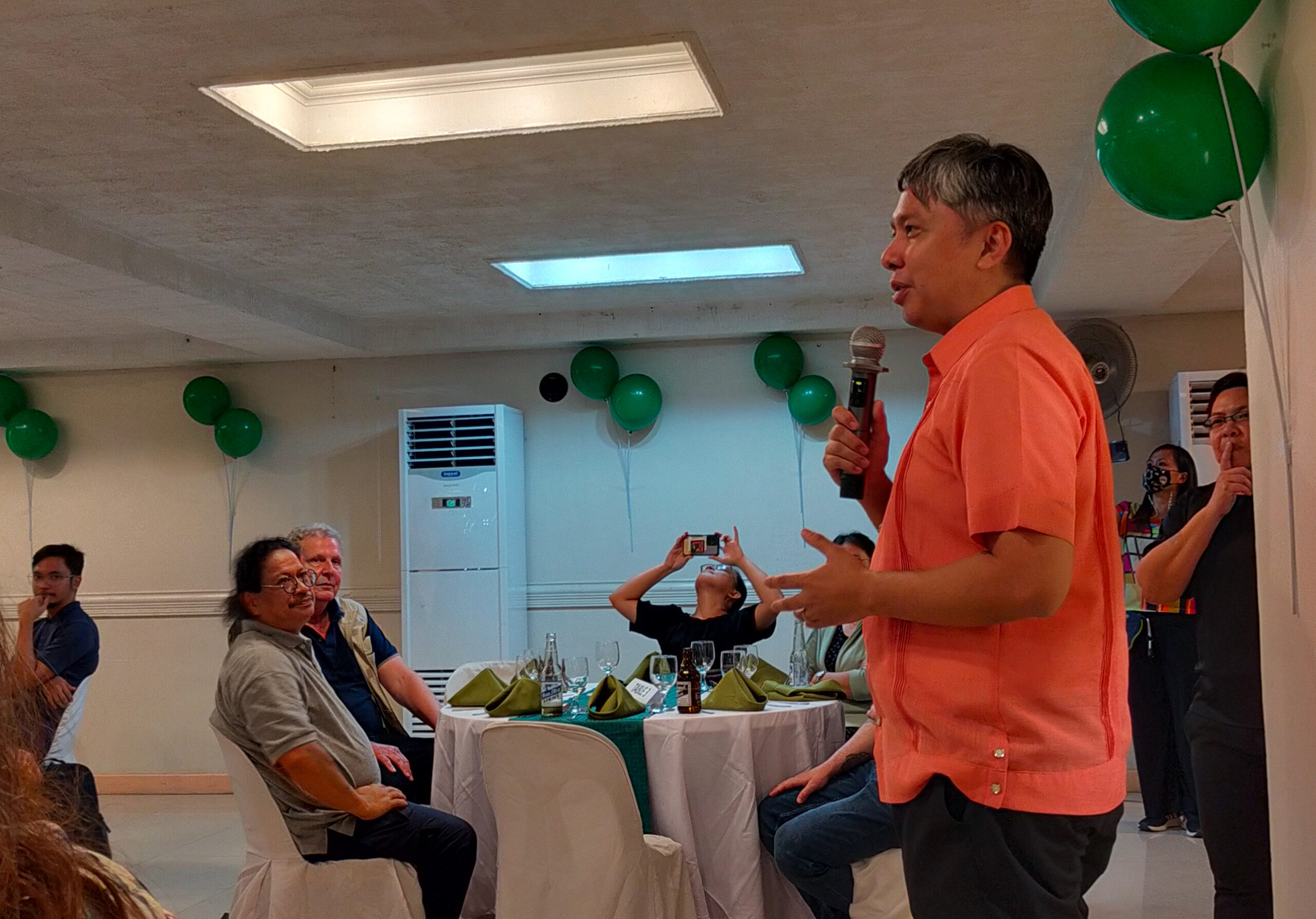
participants of the workshop (Photo credit: Ivana Biong)
The workshop was held on May 6-9 at the University Computer Center in UP Diliman. The first session of the workshop started with a talk from Dr. Patrick Roberts, who introduced the objectives of the project and the different approaches of the PANTROPOCENE in understanding land use in the Philippines in the frame of the Spanish Colonial Period. His presentation was followed by an overview of Philippine archaeology, given by Dr. Grace Barretto-Tesoro. Her talk highlighted the new chronology of human activities in the Philippines and how these can be translated into land use. Professor Greg Bankoff capped the first half of Session 1 with his talk on the approaches in studying the environmental history of the Philippines. He emphasized various environmental and social factors and how these are used in understanding the environmental history of the Philippines.
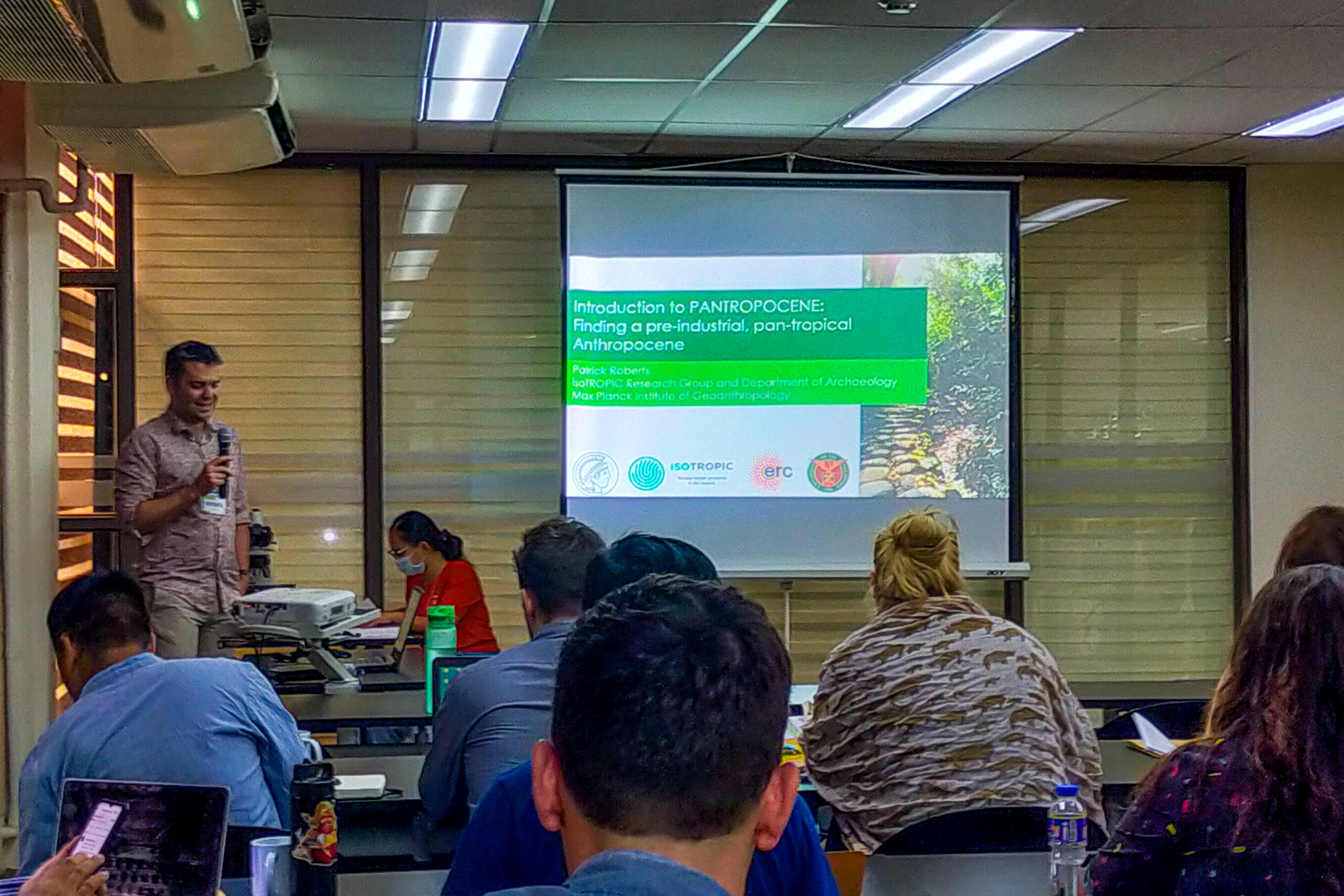
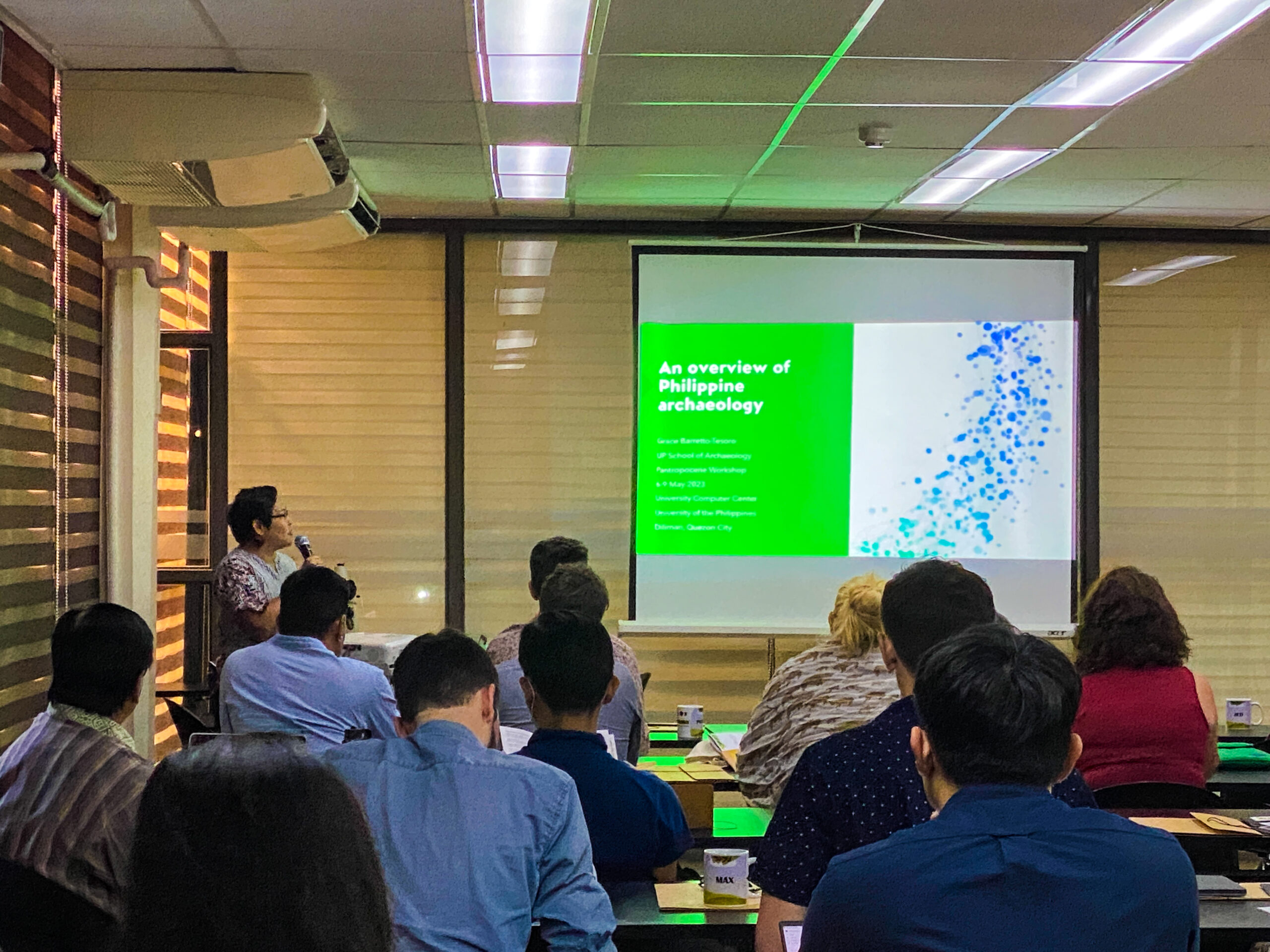
In the second part of Session 1, Prof. Stephen Acabado presented the possible points of collaboration and linkages between the PANTROPOCENE and their project on Early Modern Southeast Asia. This was followed by an informative talk on the palaeoenvironmental history of Laguna de Bay, presented by Dr. Caroline Jaraula, and how they used sediment core samples from the lake in reconstructing the lake’s history. Session 1 concluded with a presentation from Prof. Jed Kaplan, who discussed the approach used in estimating land use and how this can be applied to the Philippines.
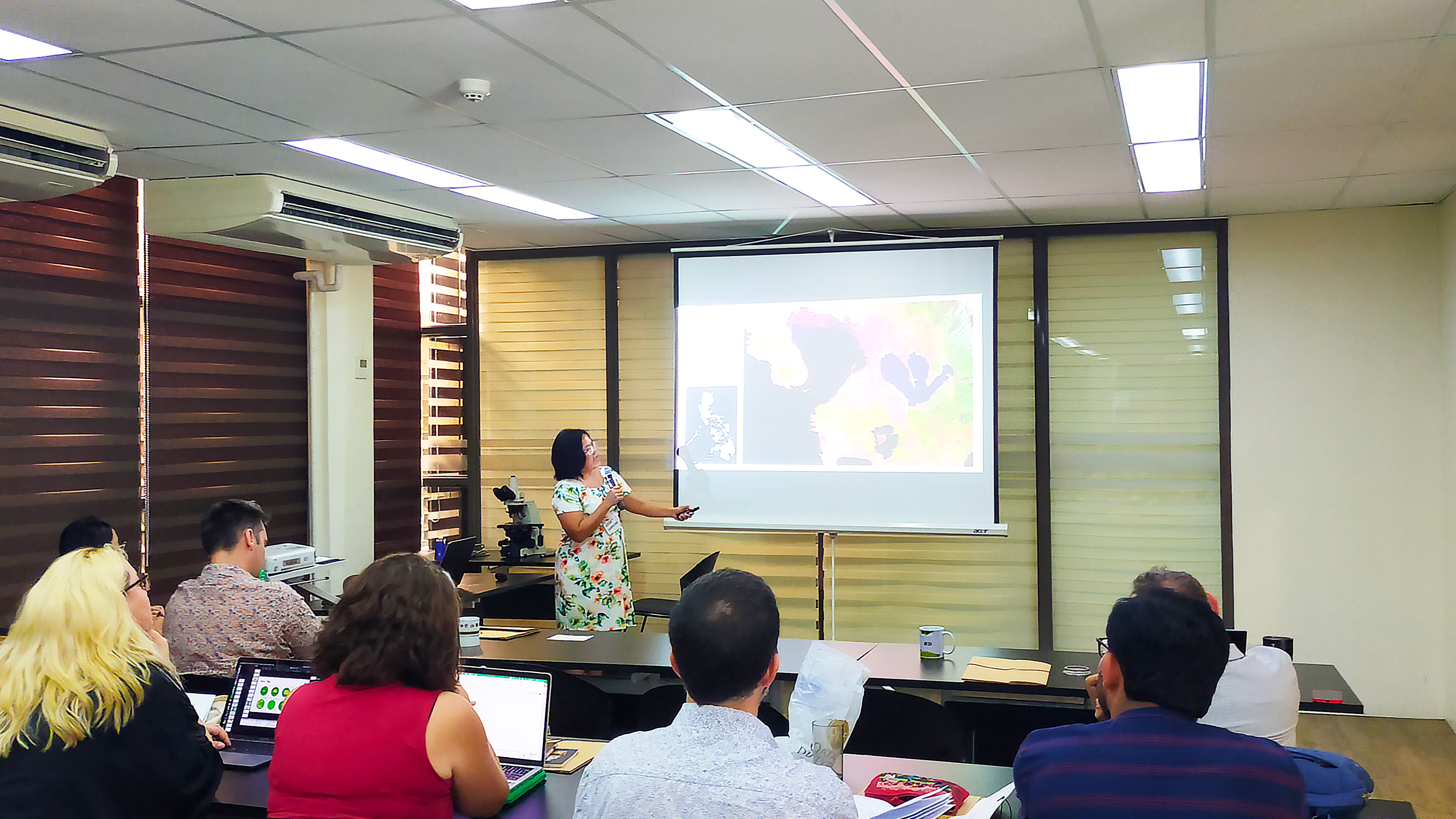
Session 2, which focused on the coring fieldwork in 2022 and 2023 with partners from UP, PSU, USC and UCLA – started off with Dr. John Peterson’s talk on the coring activities in Cebu and their efforts in describing the archaeology of Cebu and how this contributes to our understanding of the landscape history of the Philippines. His talk was followed by Dr. Deepak Jha’s presentation on the use of plant biomarkers in tracing anthropogenic signatures. This session ended with a talk and interactive seminar from Dr. Janelle Stevenson and Dr. Rebecca Hamilton on Philippine palaeoecology. They shared their creative methods of teaching palynology: using 3D printed models of pollen and through interactive card games. They concluded their presentation by showing some pollen samples from Philippine coring sites.
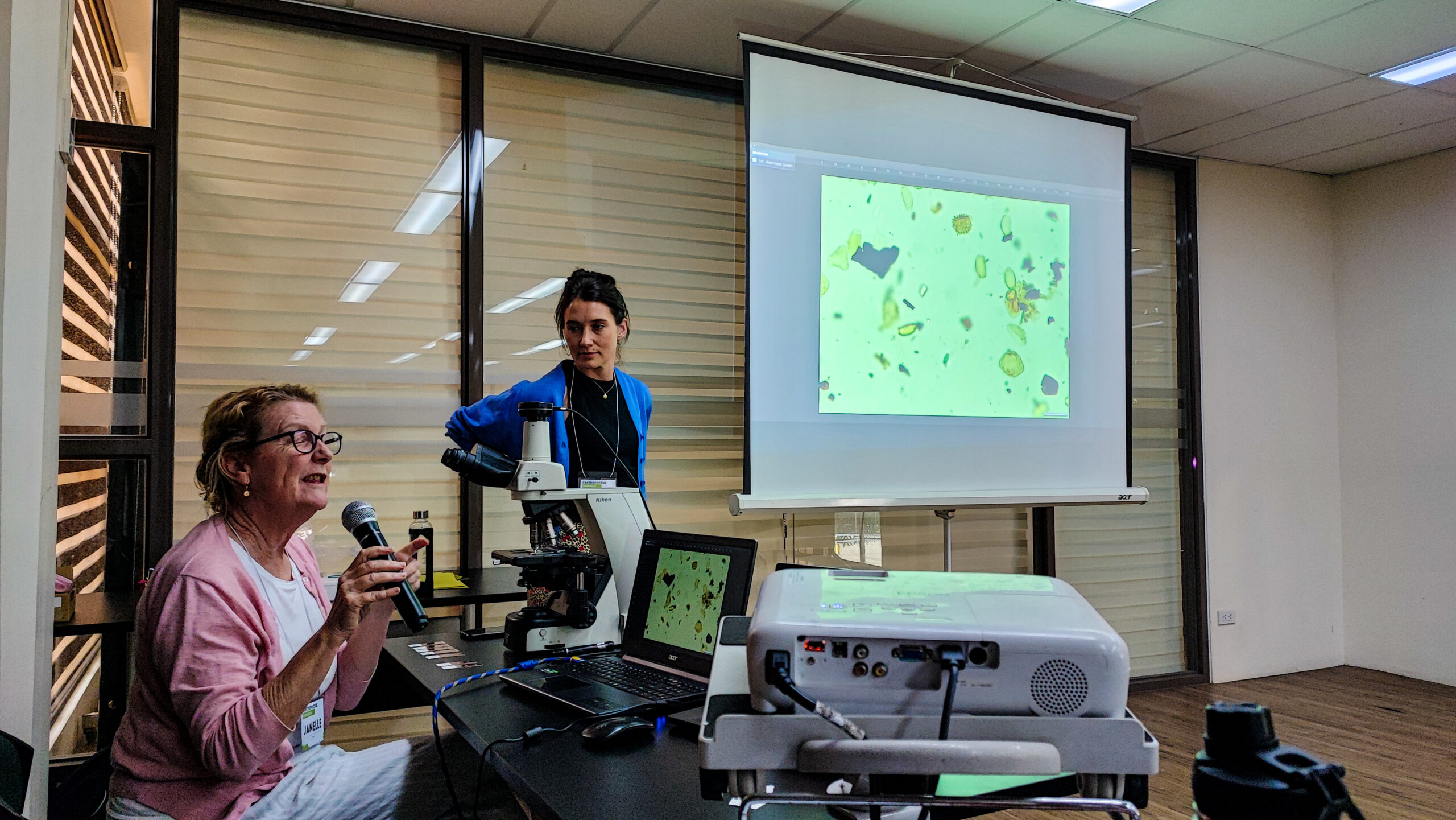
On May 7, 2023, the workshop resumed with its third session, highlighting the planned PANTROPOCENE LiDAR work and fieldwork in 2023 and 2024. Dr. Jak Sarmiento started the session with his talk on the LiDAR works in the Philippines and the projects he is currently involved in. He also mentioned how these efforts contribute to hazard mitigation in local communities. Prof. Acabado then gave another talk about his projects in the Philippines, but focusing on LiDAR applications, such as their LiDAR work in the Bicol region. His talk was followed by a presentation from Dr. Andrea Kay on their land use model of the impact of early farming on tropical Africa. Lastly, Dr. Manuel Peters presented the LiDAR plans of the PANTROPOCENE, the preparations needed to conduct such activities in the Philippines, and the possible linkages to explore to make these possible.
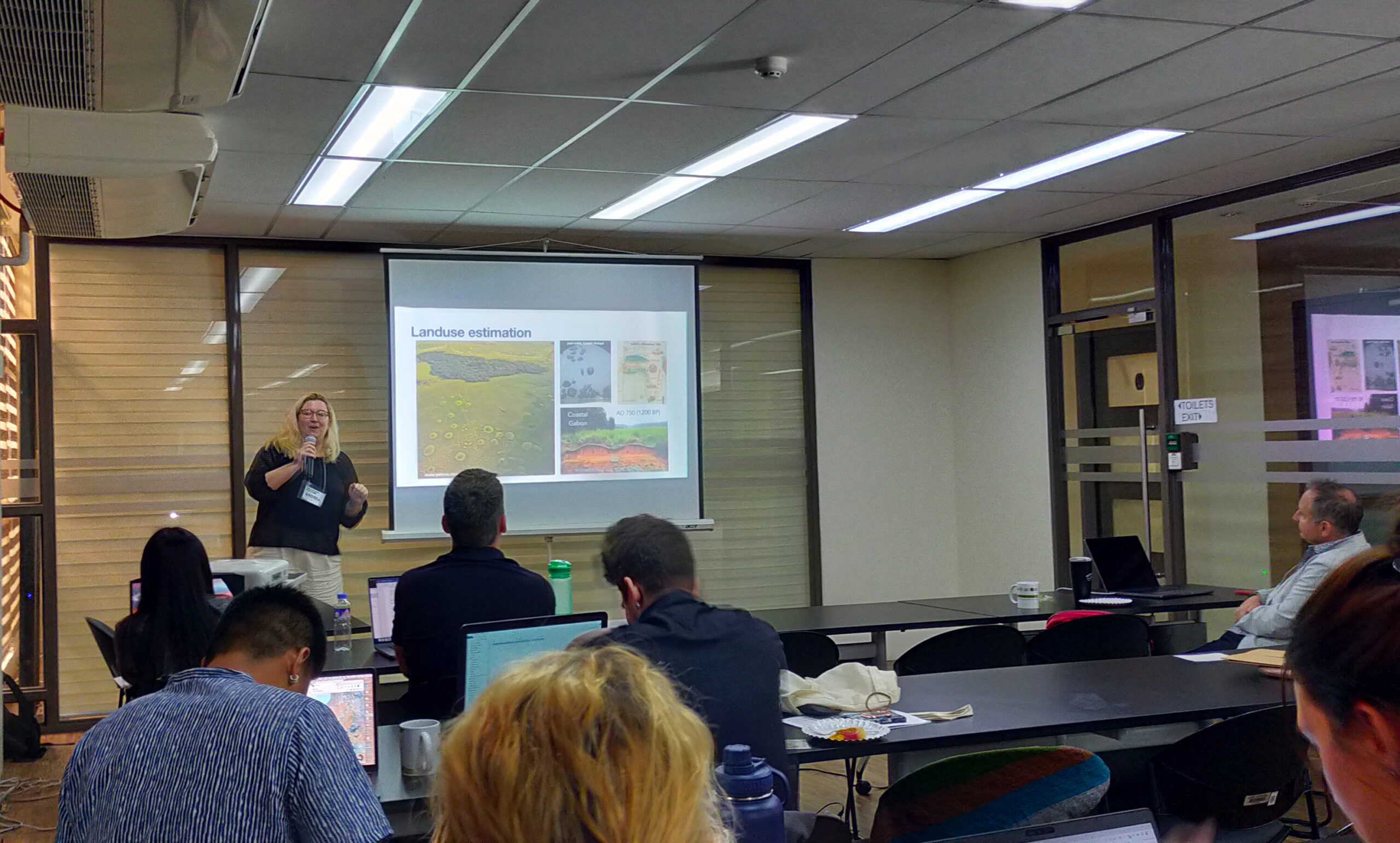
The workshop resumed in the afternoon with Session 4. Dr. Noel Amano presented an overview of the multidisciplinary zooarchaeology studies in the Philippines, and highlighted the limited zooarchaeological endeavors in the country. His talk was followed by a research update from Ms. Quincy Lingao, who presented the preliminary findings of her work on the zooarchaeology of the Galleon Trade and its contribution to the project. Then, Dr. Michael Rivera pivoted to human bioarchaeology and the possible avenues to explore to contribute to our understanding of land use. He also shared his experiences on public archaeology and how to make the future findings of the PANTROPOCENE accessible to the public.
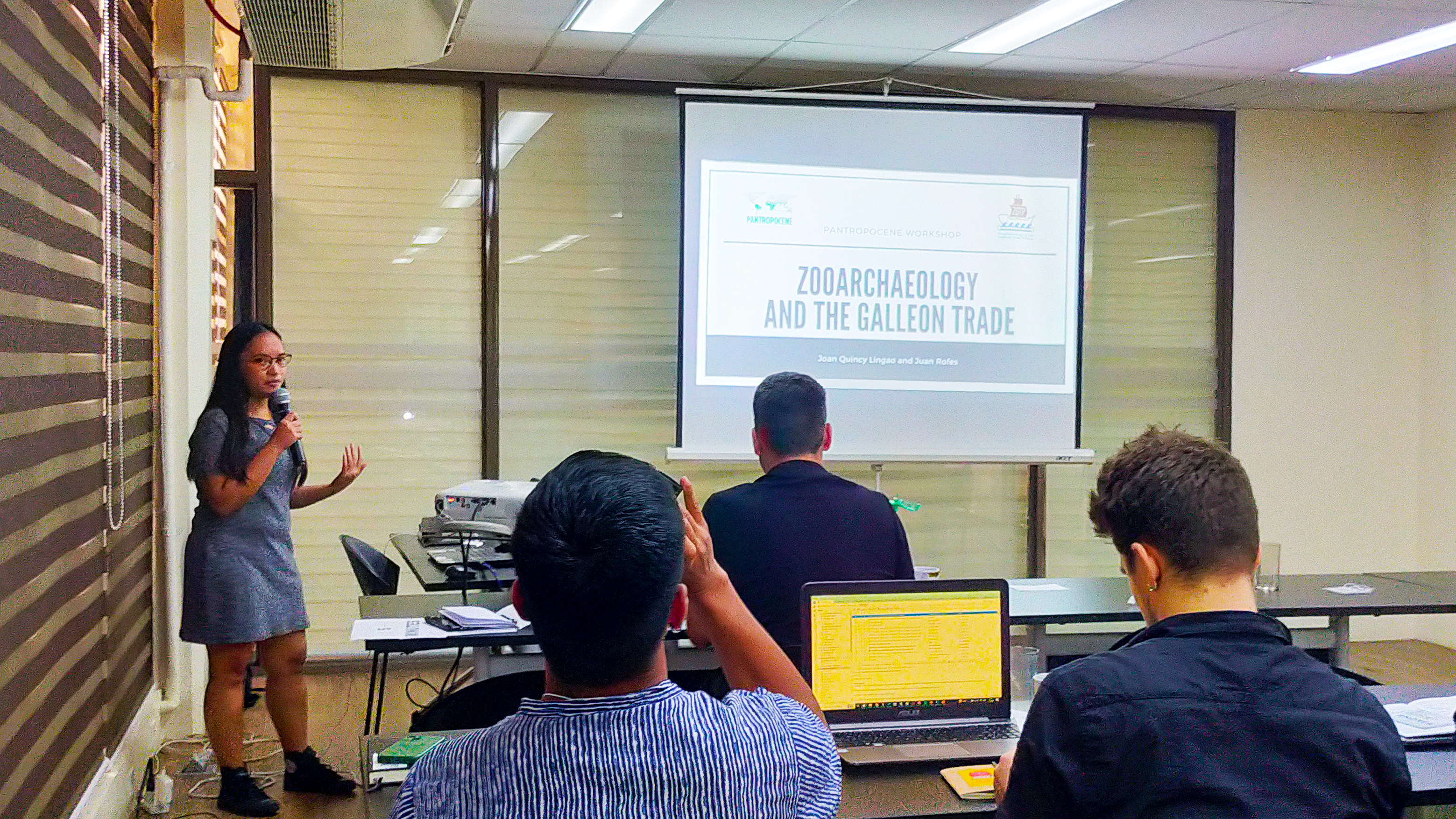
Dr. Freg Stokes also presented his works on mapping the resistance of the Guaraní peoples against colonization in the Atlantic Rainforest of South America. He also shared some of the maps he created himself, visualizing the environmental history of the region. Lastly, Dr. Amano and Dr. Juan Rofes presented the future plans of the zooarchaeologists of the project. Dr. Amano highlighted the application of biometrics and biomolecular archaeology, and how these can provide information on the ecological impacts of animal translocations. Meanwhile, Dr. Rofes presented the plans of the Zooarchaeology of the Galleon Trade Project (ZGTP), and how its future findings will benefit both the ZGTP and the PANTROPOCENE.
The second day of the workshop ended with a brief discussion on the plants and animals that may be relevant to the study of land use in the Philippines. The participants of the workshop suggested several plants such as maize, abaca, tobacco, and cacao; several animals were also mentioned such as rats, goats, deer, and the bird locally known as balinsasayaw (swiftlet).
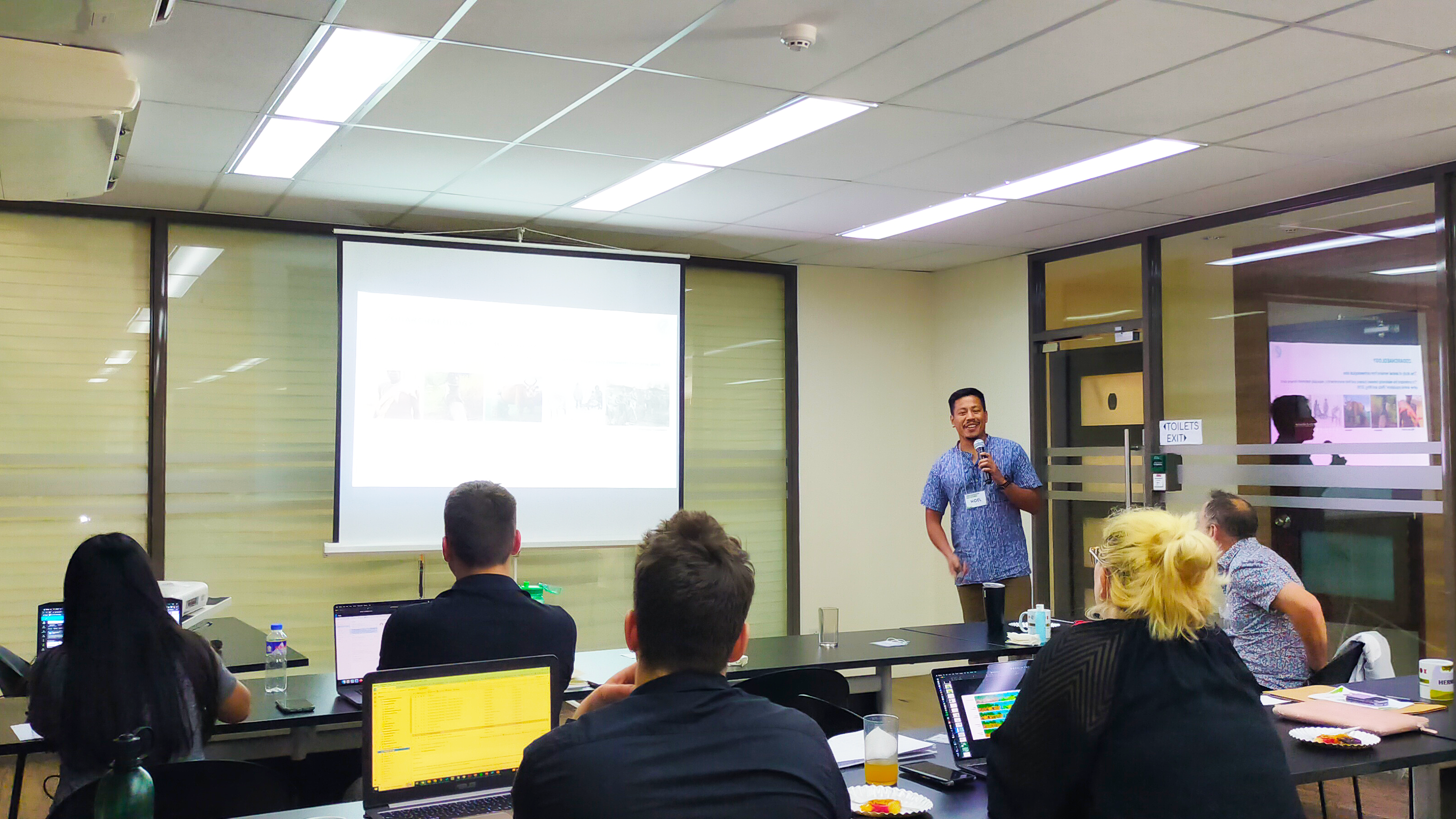
The third day of the workshop, which focused on archival research and land use modeling for the Philippine archipelago and the wider Spanish empire, was held on May 8, 2023. Prof. Bankoff discussed the maritime impacts on Philippine forest cover, including building galleons using specific species of trees and eventually, deforestation due to demands of shipbuilding. This talk was followed by Dr. Francis Gealogo’s presentation on the archival sources in the study of Philippine demographic history, highlighting the historical sources, methods and concepts that can be used for the project.
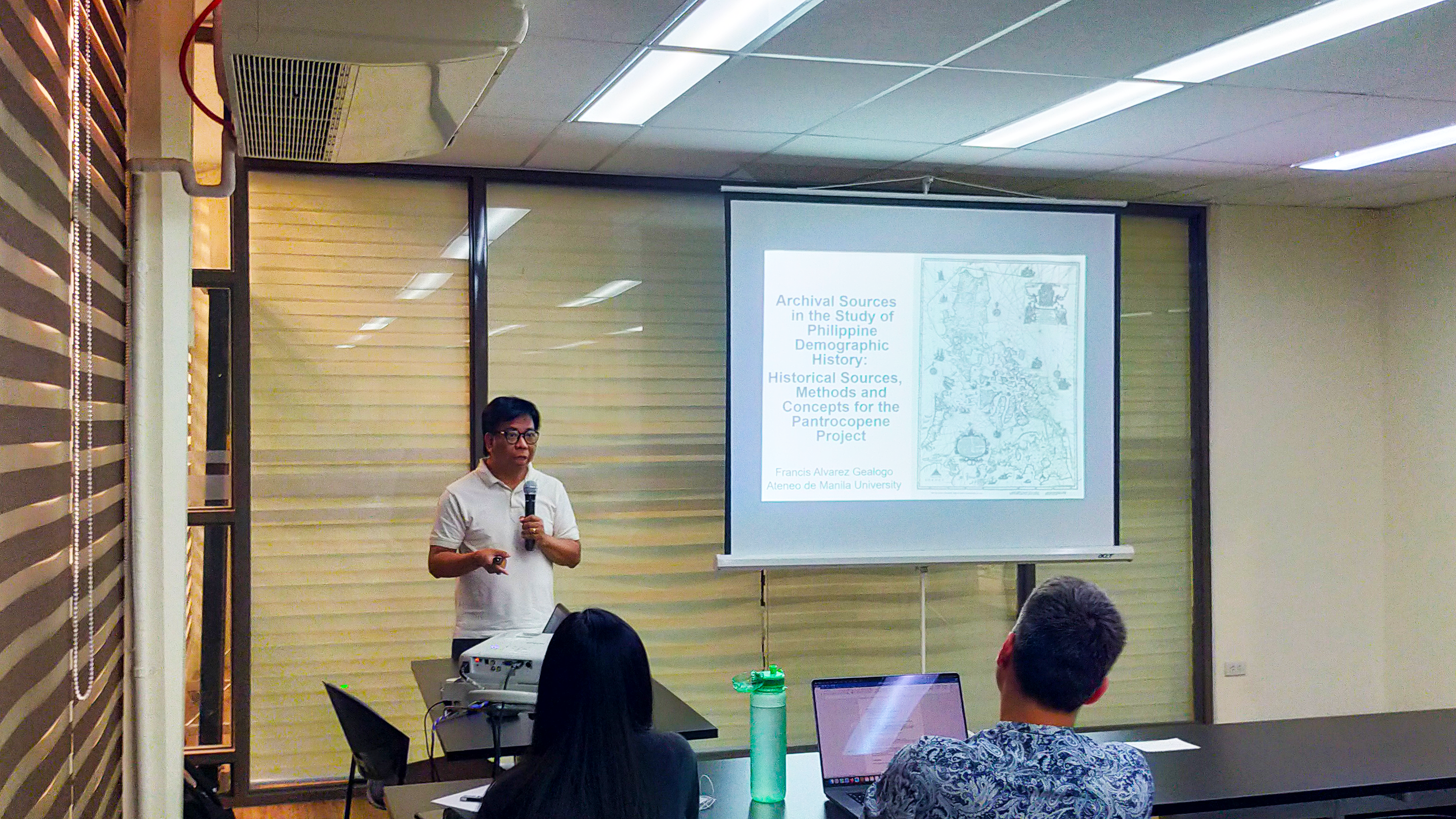
Then, Dr. Ruel Pagunsan shared his work on land use in friar estates, especially in Laguna, based on archival records. He also touched on the cash crop economy in Luzon in the 19th century. Mr. Diego Rebato, Jr. then presented his work on archives and vulnerability, discussing the geography and society in 19th century Luzon, particularly in Nueva Ecija. He also mentioned the current challenges in doing archival work in the Philippines. Day 3 of the workshop ended with Dr. Max Findley’s discussion on the different land use templates for modeling and his current progress in creating a land use model for the Philippines. He focused on four main timepoints (1564, 1640, 1780, and 1896) in mapping the changing land use in the Philippines during the Spanish colonial period.
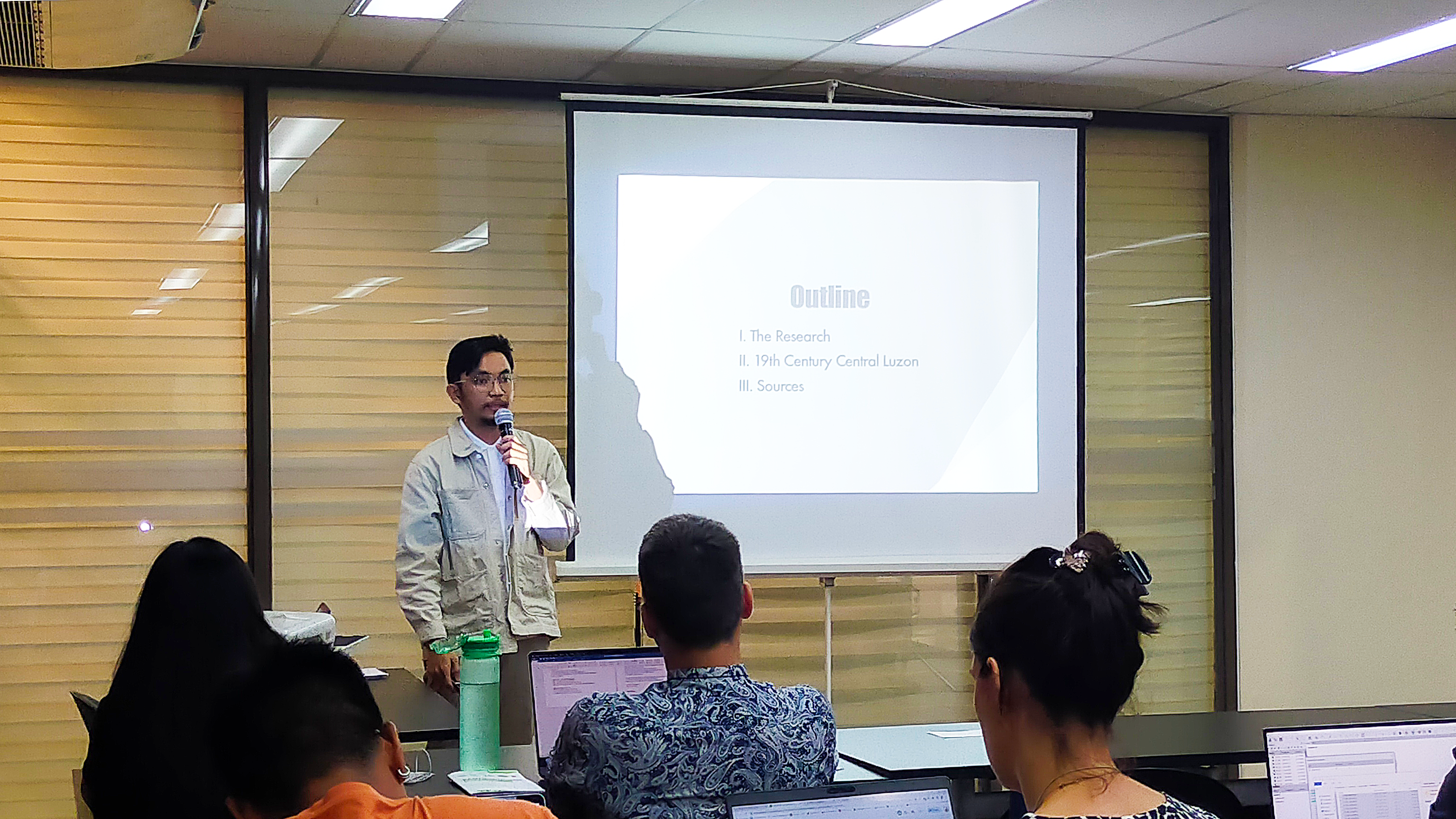
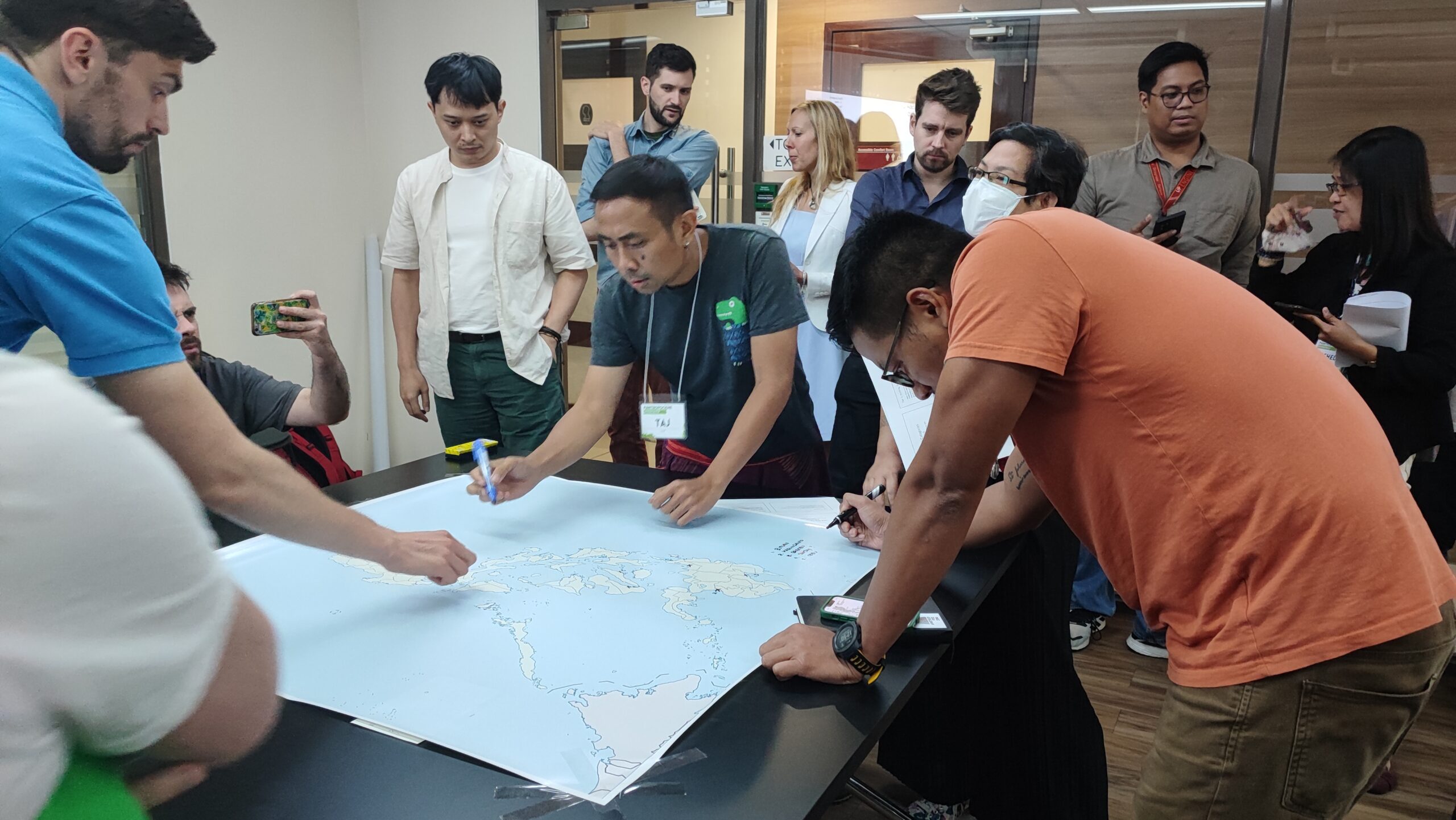
On the last day of the workshop, May 9, Dr. Rivera opened a discussion on several points of reflections for the researchers of the project regarding our understanding of history and the narratives we are creating based on this. Then, Dr. Sebastian Los gave a talk on climate science, earth systems modeling, and how these relate to land use. For the rest of the day, Dr. Findley resumed the discussion on land use in the Philippines and how these can be mapped for the models he is creating. Some of the participants also went to the National Museum of the Philippines for a courtesy call with Director Jeremy Barns.
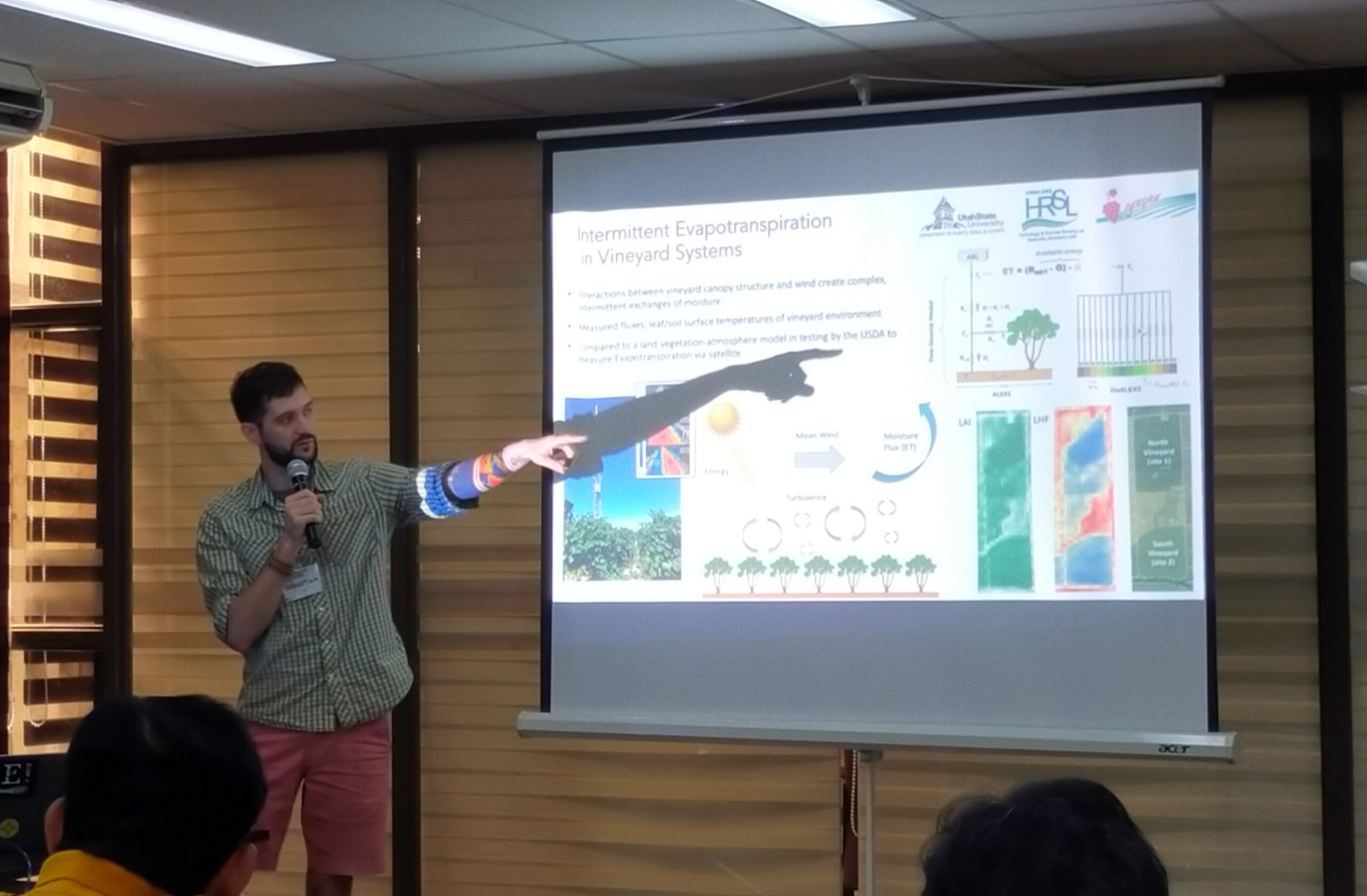
To celebrate the success of the workshop, a closing dinner sponsored by the Office of the President of the University of the Philippines was held at the University Hotel on the last night of the workshop. Dr. Roberts and Dr. Barretto-Tesoro gave their thanks to the participants who shared their expertise and ideas to further expand our understanding of land use in the Philippines.
